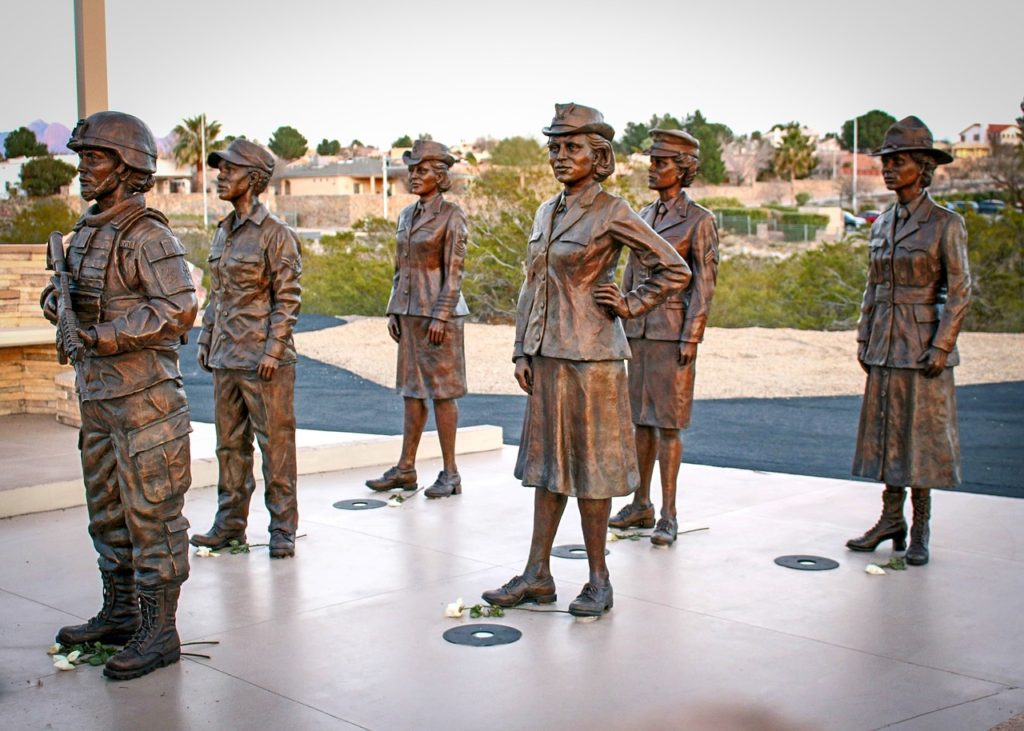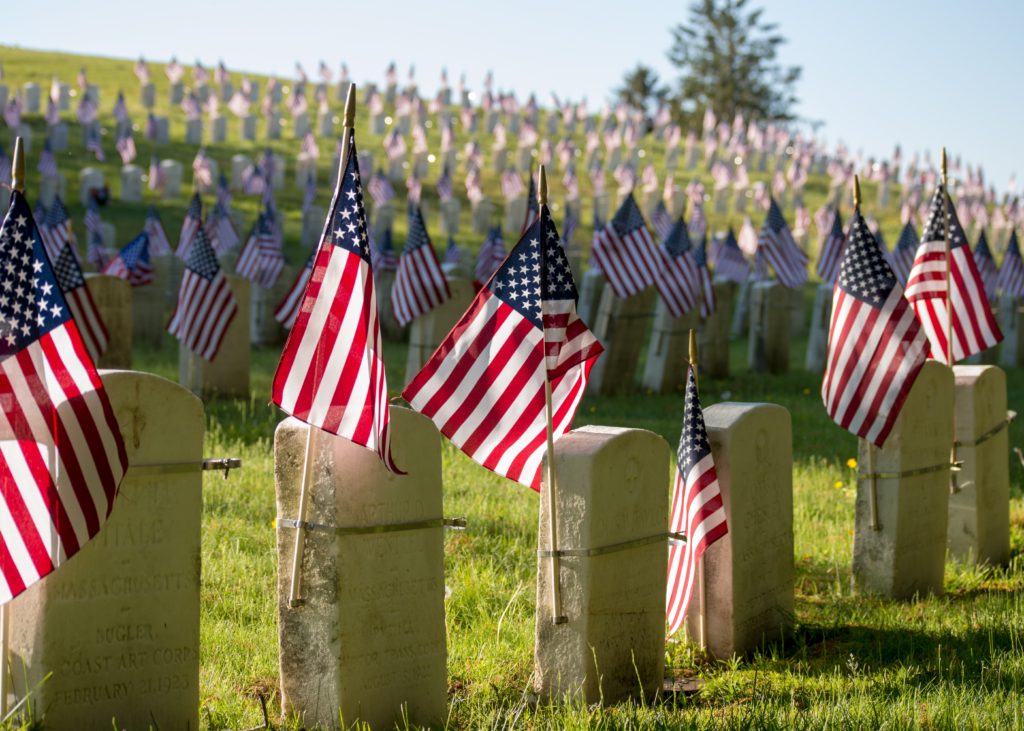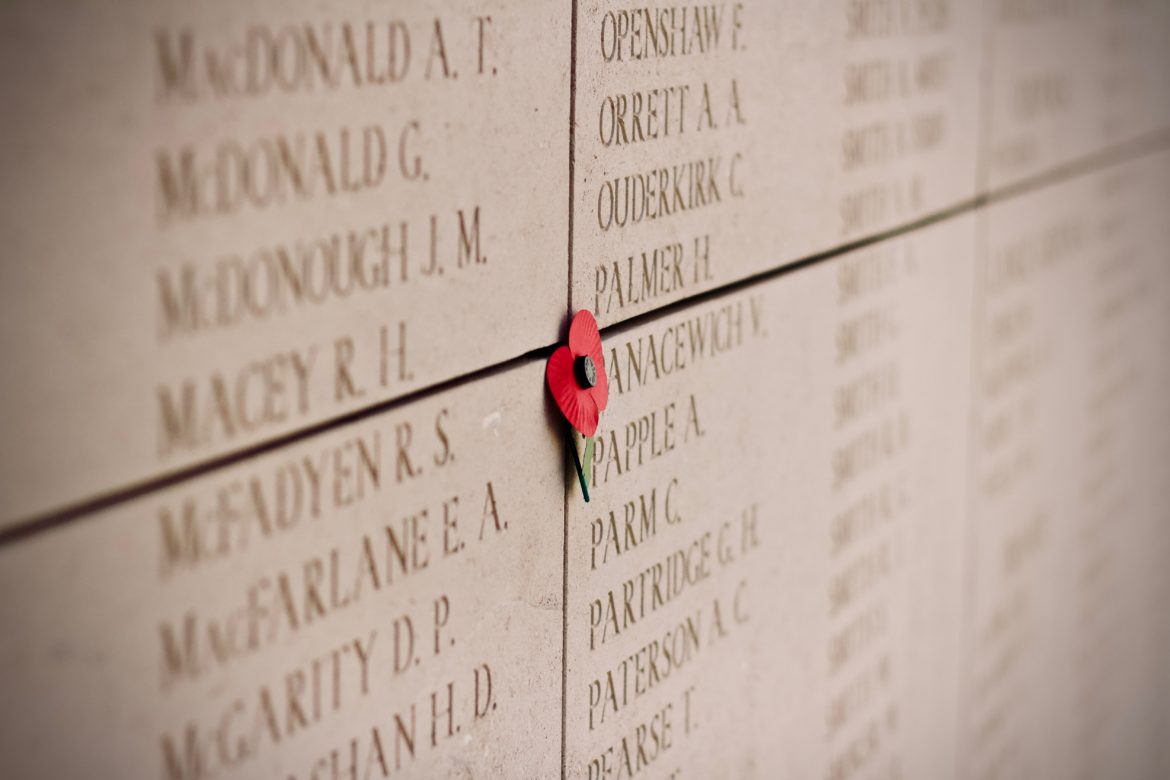One in every five enlisted members of the military are women, yet the stories and experiences of these brave women that serve are often lost in the male-centric narrative that is our country’s military. The military is no longer just a man’s world. Female soldiers selflessly defend and sacrifice themselves for our democracy, oftentimes with little to no recognition. This Memorial Day, we seek to recognize and highlight the stories of female soldiers to honor their courage and sacrifice. We hope to pay tribute to all the women who continue to pave the way for female militant participation, despite marginalization and abuse, for the pursuit of liberty and justice for all.
In 1977, Rear Admiral Wendi Bryan Carpenter became the first female in the Navy to pilot a T-44 Pegasus plane. She went on to become the first female EC-130 aircraft instructor, the first female aviation officer, the first woman to rank as a two-star admiral, and the first woman to head the Navy’s Warfare Development Command.
The integration of female officers, since Carpenter led the first wave of female participation in the military in the ‘70s, has been far from smooth sailing. Jean Coriat, who served in the Navy from 2004 to 2018, recalls her first mission aboard the U.S.S. Fitzgerald. She was the first female sailor allowed to board the prestigious vessel but was informed that, due to issues in spacing, she was not assigned a bed. Coriat slept on the floor.
Tech Sergeant Holly Ward, who enlisted in the Air Force in 2006 and is still serving today, remembers the day she was left behind on a mission. Ward was not notified that her team was to be deployed to another country that day because only the male barracks were notified. Ward now promotes advocacy against misogyny in the military for all women forgotten, harassed, and assaulted.

“Being a woman in the military is basically signing a sexual assault/ harassment contract,” said Kristi Anthony, who served in the Marine Corps from 2010 to 2014. “It takes just one mistake as a woman to tarnish all the hard work you’ve put in over the years.” Anthony’s “mistake” was reporting her sexual assault to a commanding officer. She was labelled a snitch and a liar by her unit. The response left Anthony feeling ostracized and objectified.
Recent statistics show that 50% of women who serve have experienced sexual harassment or assault at least once throughout their service. Only one out of ten of those women actually report the incident due to low trust in the military justice process.
Gender discrimination in the military is just as prevalent in the military today as it was over 50 years ago. Though not all female experiences are equal. On the day that Megen Schlesinger, who has served the Army since 2008, found out that she was to command the Army Special Operations unit, she also realized she was pregnant. Schlesinger recalls feeling nervous to tell her commander about the pregnancy, worried that he would find the timing inconvenient and remove her from the position. Schlesinger has held the position now for the past 15 years and was recently told by this same Command Sergeant Major that she “changed the way [he] feels about women in the Army.”
The role of women in the military has only recently become fully inclusive. In 2015, Lesley Anne Crumpton, who served in the Army from 2010 to 2018, helped to integrate women into the once male-dominated Ranger School. Three women joined the 61 day program that year, making it the first time in the Nation’s history that women were allowed access to this leadership training opportunity. The following year, Crumpton worked with the Defense Department to lift the exclusion ban that once prevented women from participating in direct ground combat.

For officers within the LGBTQ community, the revocation of “Don’t Ask, Don’t Tell” in 2011 allowed many to feel comfortable serving their country as their true self. Sergeant Joelene Schwebke, who has served the Army since 2012, joined as a result of the repeal, and was fortunate enough to have a drill sergeant that enforced a zero tolerance discrimination policy.
For Sergeant Kate Cole, the repeal of “Don’t Ask, Don’t Tell” gave her the freedom to openly transition to a transgender woman. Cole spent the first seven years of her service as a male soldier in the Army, making the decision to transition two years ago. Cole recalls facing discrimination she never had before, but also seeing a system that wanted to change to become more inclusive.
Since 2016, the National Institute on Health has been working with legislators to ensure that all military factions uphold the values of mutual respect and protection to all active members, regardless of their gender, race or sexual orientation. With increased intervention, gender based violence rates have gone down, the promotion rates of women as high ranking officers has increased, and women are no longer excluded from fully participating in military service.
To all active duty and veterans who sacrifice their lives daily for our freedom and protection, we salute you. Thank you for your service and your unending commitment to our country. To the women in service who feel that their voice is lost, please know we see and hear you, we respect you, and we are eternally grateful. Read more stories from women who served here.
By: Rachel Ladeby

